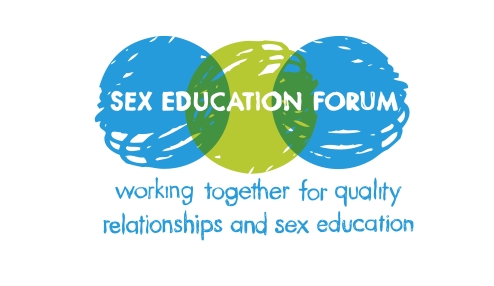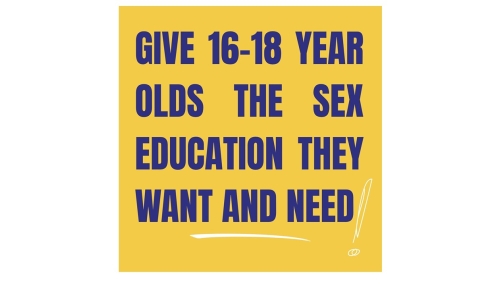What do gender violence education, breastfeeding, fertility and menopause education have in common? They appear in a list of topics compiled by Gabriel Milland in The Times (29.05.18), which sarcastically asks people to join a petition to add these ‘single-issue’ topics to the National Curriculum. These topics have other things in common too – they can all be addressed within relationships and sex education (RSE), and they particularly affect women and girls.
These topics, along with many others that are covered by RSE must not be ridiculed. They reflect the gaping wound of poor quality sex education that has left generations of people – of all genders – without crucial knowledge to protect their reproductive and sexual health and broader wellbeing.
But how can a potentially very long list of important topics be taught without adding further burden to schools?
The Sex Education Forum is one of a group of organisations launching a report showing how making personal, social, health and economic (PSHE) education statutory as an entire subject, including but not limited to RSE, can be implemented in a way that will minimise impact on teacher workload and school funding, while reaping greater benefits for standards in schools. A Teacher voice omnibus: March 2018 shows that 85% of schools already teach PSHE education and RSE together, not as separate subjects. So one very simple solution is for Government to seize the opportunity that they created in The Children and Social Work Act 2017 and go ahead with statutory PSHE education.
When PSHE education is put on the timetable and given subject leadership within a school it becomes possible to plan a developmental and spiral curriculum, with RSE as an identifiable part of it. Other school subjects are planned and resourced in this way. Can you imagine if schools started teaching maths by asking pupils to multiply multiple digit numbers in their first lesson? The building blocks for any subject have to be laid early and steadily.
The Sex Education Forum has produced a Curriculum Design Tool which sets out six areas of learning: Relationships, My body, Lifecycles, Feelings & attitudes, Staying safe and looking after myself, and ‘People who help me’. These six areas are revisited at different ages and stages so that learning about consent, puberty and sexual health can be built up in steps rather than introduced all at once. Fostering gender equality and LGBT equality and promoting safe, equal, caring and enjoyable relationships are then threads that run through all learning in RSE. So called ‘single issues’ can actually find several anchor points within a planned curriculum.
Take for example fertility. Understanding the concept of fertility is integral to teaching about puberty with primary age children and to teaching about conception and contraception with the secondary age group. When we surveyed over 2000 young people for our Puberty Issue resource we were saddened to discover that 1 in 4 girls hadn’t learnt about periods before they experienced them and 38% of boys had not learnt about wet dreams before they experienced them.
So there is much to do to bring RSE up to a good standard in all schools, but the legislative framework has been provided – RSE will be required in all schools from September 2019, and if PSHE education is mandatory too this will make it easier for schools to continue developing their provision of RSE as part of timetabled PSHE education.
Crucially there is yet to be any investment from Government in training for teachers in RSE or PSHE education. The Sex Education Forum trains hundreds of teachers every year and they often come to us with worries about how to deal with ‘single issues’ ranging from pornography to menstruation and STIs - all our tackled in our new 'Teaching Positive Sexual Health' course. They are invariably relieved to see how they can plan a spiral curriculum structured around key areas but with flexibility to respond to topical issues that pupils will want to raise. We also encourage schools to use our 12 principles to review their current RSE provision. These evidence-based principles are supported by six education unions and we would fully expect these to be reflected in the Governments much anticipated new RSE guidance.
Lucy Emmerson
Director, Sex Education Forum
1 June 2018




Share